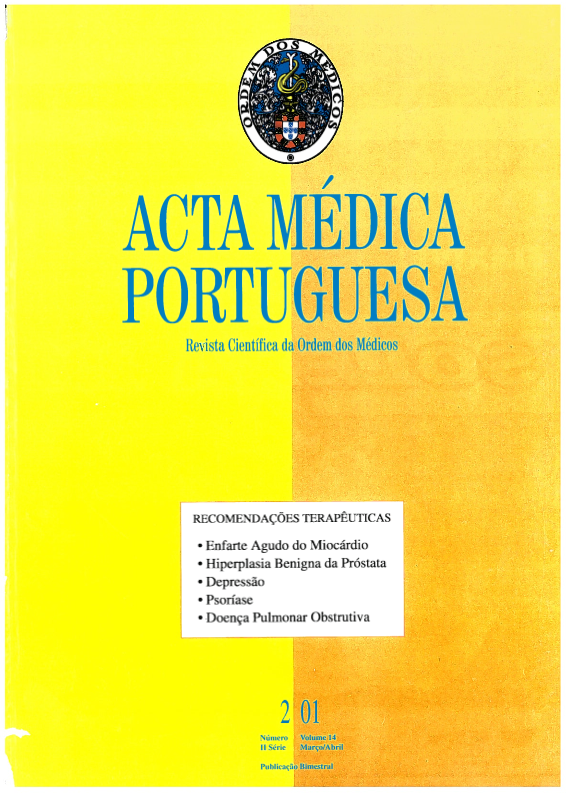Psoriasis.
DOI:
https://doi.org/10.20344/amp.1837Abstract
The purpose of these Guidelines is to summarize the most relevant features of the pathogenesis, clinical presentation and treatment of psoriasis. Patient education should include the deleterious effects that some drugs, trauma, alcohol, infection and stress may have on psoriasis; the beneficial action of careful sunlight exposure should also be emphasized. Topical treatment--emollients, keratolytics, coal tar preparations, anthralin, corticosteroids, calcipotriol--is essential for the control of plaque-type psoriasis and is also an important adjuvant therapy in more severe cases; the relative strength and the potential adverse effects of topical steroids are also referred. UV therapy (phototherapy and photochemotherapy) is recommended for psoriasis with generalized plaque, guttate or palmoplantar psoriasis refractory to topical therapies. Systemic therapy--retinoids, methotrexate, cyclosporine--is limited to severe plaque psoriasis unresponsive to topical or UV therapy, erythrodermic, pustular or arthropatic psoriasis. Combination and rotational therapies are likely to reduce the risks of each individual therapy and should be encouraged. Finally, a few diagrams are included, pointing out the scientific validity of the therapies currently available to help clinicians to optimize their management of psoriasis.Downloads
Downloads
How to Cite
Issue
Section
License
All the articles published in the AMP are open access and comply with the requirements of funding agencies or academic institutions. The AMP is governed by the terms of the Creative Commons ‘Attribution – Non-Commercial Use - (CC-BY-NC)’ license, regarding the use by third parties.
It is the author’s responsibility to obtain approval for the reproduction of figures, tables, etc. from other publications.
Upon acceptance of an article for publication, the authors will be asked to complete the ICMJE “Copyright Liability and Copyright Sharing Statement “(http://www.actamedicaportuguesa.com/info/AMP-NormasPublicacao.pdf) and the “Declaration of Potential Conflicts of Interest” (http:// www.icmje.org/conflicts-of-interest). An e-mail will be sent to the corresponding author to acknowledge receipt of the manuscript.
After publication, the authors are authorised to make their articles available in repositories of their institutions of origin, as long as they always mention where they were published and according to the Creative Commons license.









